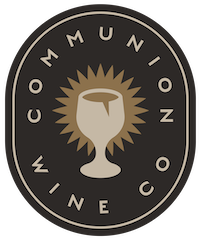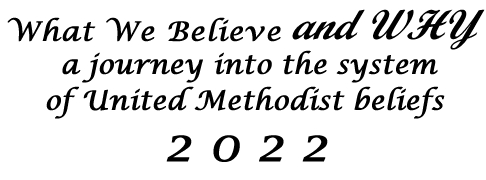taking a look at the
Like when you sit in front of a fire in winter — you are just there in front of the fire. You don't have to be smart or anything. The fire warms you.
Last week we focused on the bread. This week we look at the wine. Next week we share together.
If the bread symbolizes the Body of our Savior, the Wine is supposed to speak about his blood, shed for our sins. His body was broken, shown to us through the breaking of the bread as the officiant usually pulls the loaf apart into two pieces. Our communion process is rather simple as we only have some bread and a cup before us. The Jewish Sader meal is a much more complex partaking of lamb meat and oil and cracker bread until there is small bite put together that is then dipped into the cup. (If you ever get a chance to be a part of a Sader meal, I highly recommend.) The last part, however, is the cup. And, in our Protestant tradition, we focus on the two elements mentioned in the scripture as Jesus brings his hearers attention to them. I see much of the fellowship we need to have with one another in the communion elements, especially in the bread. What is so special about the wine, then? What kind of experience do we have together as we share in the cup that symbolizes his blood?
The foodie in me came out as I was preparing the message this week. I'm sitting in Champs Pizza and Pub putting some thoughts into the blog post for this week's sermon. I have a Hawaiian Pizza coming to me in a matter of minutes. (I have added mushrooms and jalapenos to my pizza because... I'm a little crazy) And, it comes to me... this is where a great communion service could happen! There is a sharing in the bread and there is fellowship in the wine. What do people do when they are having a drink together? They are usually having a good time! I take to Google to see what I might find with a search of "communion experience wine". I'm hoping there might be some people who have shared their own stories surrounding a time of fellowship with other people in their own personal moment with the Lord's Supper. One of the first results I saw in my search was for the Communion Wine Company. They have a vineyard in Oregon and a Beer and Wine Tasting Bar in Arizona called the Divided Vine. I just felt like there was a story behind the name of the bar and I was intrigued by the concept I read on the opening page of their website. I had to know more about this place.
Because I'm not all that shy, I immediately grabbed their email address and wrote to them. If you visit their site, you will quickly find out that the owners are Jeremy & Michelle Jernigan. They have 5 kids and live in Oregon. Jeremy is a second generation preacher with a passion for sharing and talking with people. The drive of the Communion Wine Company is to bring people together around wine to experience Jesus in new ways. Let me ask you, when was the last time you just sat down with someone and had a drink? When was the last time you experienced fellowship and peace with others around the table? Some might think it too fundamental to think of sharing in wine as we talk about Jesus. There are those in our world who would see something like the Lord's Supper and think, "They served wine. We should drink wine also." (I poked at our Lutheran friends on Facebook today as I prepared for this Sunday. I take no shame in doing so.) There are some who would open a bottle and pour a glass and sit and talk about their beliefs in front of others. This company is pressing it's inspiration into my heart further. After reaching out through email, I got a response from Jernigan. I wanted to know more about the Divided Vine's name and Jeremy responded with, "[It's] is a clever name as half the bar is wine and the other half is beer. They have the wine list on one wall and the beer list on the opposite wall. The idea is that there is normally a divide between beer and wine drinkers but they want to bring them both together. The owner isn’t a Christian but he has become an incredible ‘person of peace’ to partner with us and host our events." I thought the name had to come from some background about our divided nature over things in this country. There is always a chance to bring people together over a glass or a bottle and talk things out. What better place than here?I reached out again to ask about his own background and personal journey. How did they come up with this idea to do a ministry around a wine company? Jeremy came back to me with, " I was in full-time ministry for two decades and was Lead Pastor of a megachurch in Portland for three years. I ended up quitting when my eldership told me that I needed to stop talking about the things I was talking about. It made me realize that many of the conversations that need to happen may not be able to happen inside of our churches. We try and create space for people to feel safe to explore Jesus in ways that may not fall in line with their church experiences." He still speaks regularly in churches and has a "foot in both camps", so to speak, as he tries to present Jesus to as many people as possible. It makes me wonder what kinds of things Jernigan had been talking about that would have made his church leaders feel uncomfortable. There is plenty of ground to cover that would probably make others not so easy with the material that needs to be addressed as we try to bring others to Jesus. And, the subject of alcohol would tend to make some feel uneasy as they think about trying to separate their faith from any possibility of drunkenness. But, aren't the people we need to reach right their around some bar stools? I shouldn't need to remind a bunch of Methodist minded people that our founding fathers, some Wesley boys, are historically noted for crafting some hymns that would have followed some tunes that would have been heard from a piano in some places called "bars". "The world is my parish", are the world famously coined and attributed to John Wesley himself. That world would include those not so well thought of places where we might not want to find ourselves going. When was the last time you found yourself inside of a place like Champs Pizza and Pub, especially since it has been expanded and remodeled into the lovely bar it is today? You might find yourself in front of a conversation with an area Thornvillian or Glenfordite that you wouldn't normally see.
One of my fellow colleagues is Zach Bechtold. He is one of the two guys who does a podcast and blog called Bearded Theologians. (You can guess why.) Yes, Zach is all his bearded glory is the pastor of Grace UMC in Cheyenne, WY. Zach has actively been involved in a bar room ministry with other men in the area who meet for a glass and have a small bible study at a nearby bar. It has been going on for several years and Zach finds it truly rewarding and fulfilling. It has opened him up to people he might not otherwise get to talk with or share. Certainly, the matter of alcohol brings to the surface the need to confront any issue getting drunk. It should be noted: if alcohol is a temptation that is not easily handled in your particular life, then you should avoid this sort of thing. Still, there are people here who need to be reached out to and it take other human beings with self control to work in this area.
I am able to reference a time in my own life when I needed to do this. For the larger part of my time on this earth, I had not consumed alcohol. It wasn't until I was 40 and living in Thornville that I occasionally would have a beer socially. Prior to that, it never existed in my life. You would have had to go clear back to high school to find a time where I even tried some beer. When my wife and I were freshly married, I would take my car out to her cousin's house for a 6 month look at the brakes. Her cousin was a true blue beer drinker. In the time it took him to look my brakes over, he would probably have 5 or 6 bottles. He would offer me one. I would always turn him down. Then, on one visit, I decided I was going to have one. I had it in my mind that I could show him that you could simply drink one and stop. As he was taking the brake caliper off the driver side, I recall saying to him, "Todd, you know you can have just one and be done, don't you?" As he began to tear into the brake on the passenger side, his response was, "Yeah, I know", as he cracked the top on another beer. I finished my beer and he finished the brakes and that might have been the last time I went out to his house for a brake job. Sometimes, all we can do is be there and be the voice. We can't force change. All we can do is offer the bread and wine and be there for a shoulder, even if they don't want it.
One of the most fulfilling things I have had the opportunity to do during my time in Thornville is to visit Weasel Boy Brewing in Zanesville. Nathan Zangmeister, bass player for the Wayfarers and one half of our favorite Sunday morning twosome Two by Two, playing guiatr along side pianist Carrie VanSickle, hosts an open mic night at Weasel Boy on the third Thursday of ever month. I have had the pleasure of singing there for several of those nights as the stage is open to local area talent. It has been a pleasure to sing about my faith and share some some songs that make you think. I have also had the joy of sitting and talking with people from all over. Musicians. Zanesville folks. Working people who just need a chance to unwind and relax. I have had conversations about church and God. I have shared music and prayer. Nathan and Carrie have done sets of old songs and classic hymns. You wouldn't think someone could do that in such a setting. But, you can. And, you should. There are people who need to here. There are souls longing for the contact. Ministry is about meeting people. People are everywhere.
That is just where we are told to go.


















